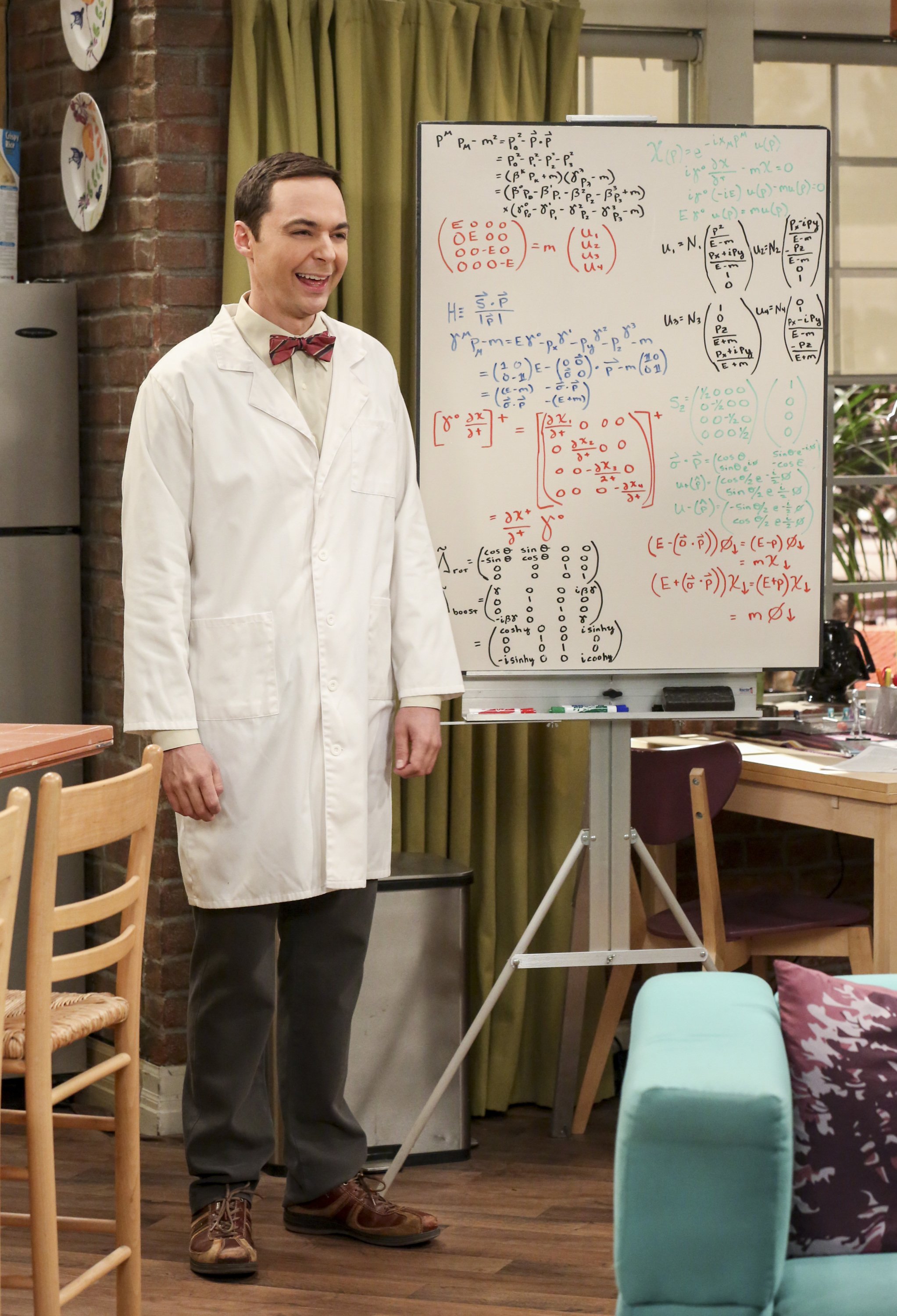Is Sheldon Cooper real? This question has intrigued fans of The Big Bang Theory for years. The character, portrayed by Jim Parsons, is a brilliant theoretical physicist with a unique personality that captivates audiences worldwide. As the show aired over 12 seasons, viewers often wondered if someone like Sheldon truly exists in real life. His quirks and genius-level intellect have sparked curiosity about whether such individuals are part of our world.
Sheldon Cooper's charm lies not only in his intellectual prowess but also in his eccentricities. From his love for comic books to his rigid routines, Sheldon embodies a complex blend of traits that make him both relatable and fascinating. While he may seem too extraordinary to be real, there are indeed people who share similar characteristics. Let’s delve deeper into the truth behind this beloved character and explore how closely fiction mirrors reality.
CMU Physics Professors Celebrate Science
Over the past 12 seasons, The Big Bang Theory has introduced us to unforgettable characters like theoretical physicist Sheldon Cooper. But does someone like Sheldon exist in the real world? Two Carnegie Mellon University physics professors believe so. They credit the show for making science more appealing and accepted among the general public.
These professors see parallels between the fictional Sheldon and actual scientists. By showcasing the lives of researchers through humor and relatable scenarios, the series bridges the gap between academia and popular culture. It highlights the passion and dedication required in scientific fields while celebrating the quirks that come with it.
Their appreciation goes beyond entertainment; they recognize the positive impact the show has had on encouraging young minds to pursue careers in STEM (Science, Technology, Engineering, and Mathematics). Through its portrayal of characters like Leonard and Sheldon, The Big Bang Theory inspires future generations to embrace their curiosity and love for learning.
Fictional Character With Real Traits
Sheldon Lee Cooper, Ph.D., Sc.D., is one of the main characters in CBS's long-running sitcom The Big Bang Theory. Played by Jim Parsons, Sheldon is a highly intelligent theoretical physicist whose personality blends brilliance with idiosyncrasies. Despite being fictional, many aspects of his character resonate with viewers because they reflect genuine human traits.
His exceptional memory and analytical skills mirror those found in some gifted individuals. However, his struggles with social interactions highlight challenges faced by people with certain neurodivergent conditions. Although the show never explicitly labels Sheldon as having autism, these elements contribute to his multidimensional persona.
Wikipedia entries further solidify his status as an iconic figure in pop culture. Fans appreciate the depth added to his character throughout the series, making him more than just a caricature of a scientist—he becomes a symbol of intellectual achievement and individuality.
Beyond Cute Autism: Addressing Stereotypes
While The Big Bang Theory brought attention to Sheldon's peculiar behaviors, critics argue against reducing his character to what some call cute autism. Portraying neurodivergence solely through humorous quirks risks oversimplifying serious conditions. Instead, understanding the full spectrum of experiences associated with autism is essential.
People living with autism exhibit diverse abilities and challenges. Some display remarkable talents in specific areas, while others face difficulties in communication or adapting to change. Reducing them to stereotypes undermines their complexity and humanity. Acknowledging this variety helps foster greater empathy and awareness.
By examining how media represents neurodivergence, we can promote more accurate and respectful portrayals. Encouraging nuanced discussions ensures that all individuals receive recognition for their unique contributions rather than being confined to narrow depictions.
Inspiring Young Minds: A Modern-Day Sheldon
A modern-day version of Sheldon Cooper recently made headlines when a 14-year-old joined Elon Musk's SpaceX as a software engineer. This prodigy demonstrates the potential within today's youth to achieve greatness at an early age. Such achievements remind us that geniuses like Sheldon aren't confined to television screens—they exist right here in our communities.
This teenager's story exemplifies how passion combined with talent can lead to extraordinary opportunities. Just like Sheldon, he exhibits advanced knowledge and problem-solving capabilities far beyond his years. His journey serves as inspiration for aspiring scientists everywhere.
Moreover, stories like this challenge traditional perceptions of education and career paths. They emphasize the importance of nurturing young talent and providing platforms where creativity and innovation can flourish. As society continues evolving, embracing diverse forms of intelligence will remain crucial for progress.
Rare But Present: Finding Your Inner Sheldon
On Reddit forums dedicated to The Big Bang Theory, users discuss whether anyone resembles Sheldon Cooper in real life. Statistics suggest fewer than three percent of people possess comparable traits. Yet, even if rare, these qualities add richness to human diversity.
Characteristics such as exceptional memory, analytical thinking, and intense focus appear across various professions. Whether in academia, technology, or arts, individuals embodying these attributes contribute significantly to advancing knowledge and solving complex problems. Recognizing these strengths fosters collaboration and mutual respect.
Ultimately, finding your inner Sheldon means embracing what makes you unique. Embracing personal quirks alongside intellectual pursuits allows everyone to thrive in their chosen fields. After all, every great discovery begins with curiosity and determination—traits shared by countless unsung heroes around the globe.
Young Sheldon Cooper: Bridging Generations
Dr. Barbara Christie shares her experience meeting a real-life Young Sheldon Cooper—an eight-year-old science prodigy with remarkable cognitive abilities. Her encounter reveals how early exposure to scientific concepts shapes young minds eager to learn. Like the TV version, this child displayed impressive memory retention and analytical reasoning skills.
However, she noted differences in other intelligences, such as mechanical or interpersonal aptitudes. These variations underscore the multifaceted nature of intelligence itself. No single measure defines success or capability; instead, multiple dimensions interact to create well-rounded individuals capable of achieving greatness.
Stories like hers inspire educators and parents alike to support children's interests regardless of conventional norms. Providing resources and encouragement enables young talents to grow into confident leaders prepared to tackle tomorrow's challenges. Together, we can build environments conducive to fostering innovation and creativity across generations.

